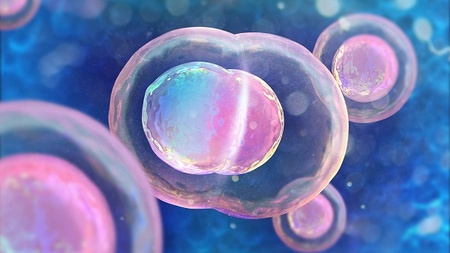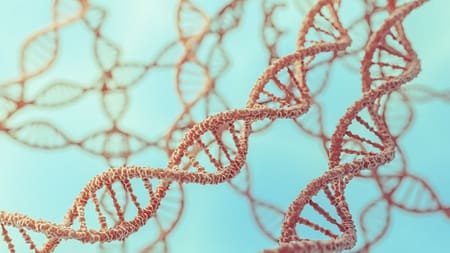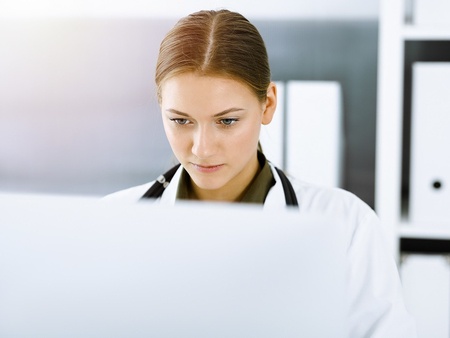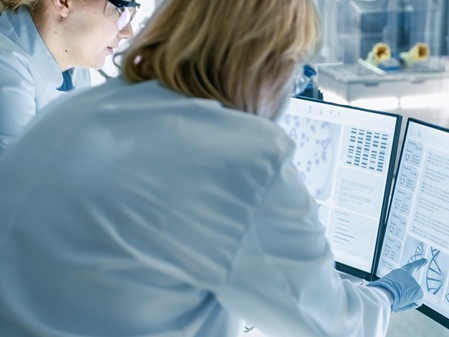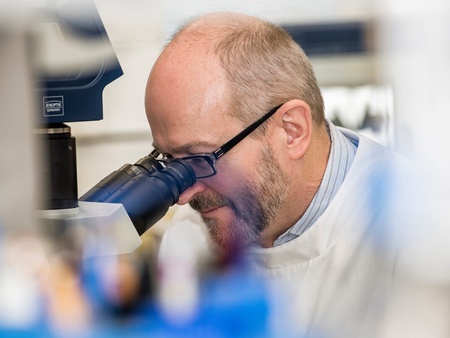Cell and Developmental Biology
Section Lead: Professor Valerie Speirs
Life-long health begins with the embryo and is impacted throughout life by numerous factors, including tissue growth, remodelling, disease and degeneration. Understanding the complex interplay between these processes is important for normal health and for understanding disease. Our basic, applied and translational research investigates the ways in which normal and abnormal embryonic, foetal and postnatal development impacts on human development, health and disease. This includes investigating the cellular and molecular mechanisms that underpin normal development and those that form the basis of disease, including musculoskeletal diseases and cancer. This world-class research will inform better care for patients, including the generation of more effective and safer drugs. Much of our research is translational and routinely involves close collaborations with clinicians and epidemiologists, including with colleagues in the Aberdeen Centre for Arthritis and Musculoskeletal Health (ACAMH), the Aberdeen Cancer Centre , and the Breast Cancer Now Tissue Bank , the only Centre of its kind in Scotland.
People
Professor Martin Collinson studies the genetic basis of human birth abnormalities, with particular focus on gene mutations underlying disease of the eye and the rest of the nervous system.
Professor Cosimo De Bari (Honorary) is a clinically active rheumatologist and a translational scientist with expertise in musculoskeletal regenerative medicine and arthritis pathophysiology. He has a long-standing interest and track record in the study of joint health and disease, with a focus on cell-based therapies for cartilage repair and osteoarthritis.
Professor Lynda Erskine studies the cellular and molecular mechanisms regulating early brain and eye development, and the importance of events before birth for later risk of eye disease.
Professor Paul Fowler uses the SAFeR cohort of normal human fetuses to better understand fetal development in our own species and how it is disrupted by maternal and environmental factors, such as obesity and exposure to pollution.
Dr Thomas Hiscock uses mathematical models, computational data analysis and close collaborations with experimentalists to understand development - the remarkable processes that allow single-cell embryos to develop into complex, functional and diverse adult forms.
Dr Arimantas Lionikas studies the genes involved in muscle development, growth, and maintenance throughout life, and if these genes could be drug targeted to treat muscle loss occurring due to ageing or disease.
Dr Anke Roelofs (Honorary) studies the roles of stem and progenitor cells in skeletal joints to understand how joints are maintained and repaired throughout life and how this is disrupted in arthritis.
Professor Valerie Speirs is a cancer biologist who studies the microenvironment of breast cancer in men and women to uncover sex specific differences that might be exploited therapeutically.
Professor Neil Vargesson studies the role of blood vessels in normal limb development and teratogen-induced limb malformations. Also has interests in understanding the mechanism/s of action of thalidomide and other medicines in relation to making safer forms of medicines.
